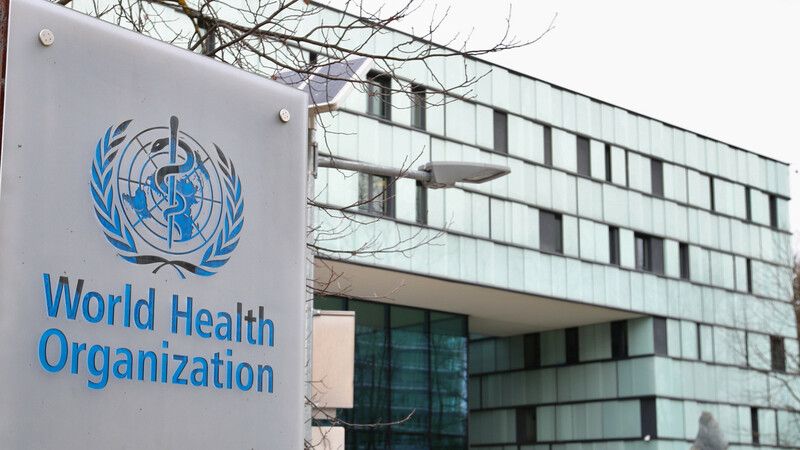Biden must set firm conditions for re-engaging with the WHO
(注:我和Aaron Rhodes先生在《國會山莊》(The Hill)发表文章,呼籲未來拜登政府,必須設定兩個先決條件才能重新與世界衛生組織打交道:
1.正式把台灣納入世衛組織的工作過程,做觀察員甚至正式成員
2.組織世界專家在中國進行公開透明、令人信服的對新冠病毒源頭的調查。)

President-elect Joe Biden has signaled that restoring relations with the World Health Organization (WHO) will be among his first acts as president. But to do so unconditionally would be to pass up opportunities to reform the organization and help it escape from the grip of China’s communist government.President Trump’s decision to leave the WHO came abruptly, but it was far from arbitrary. The United Nations agency had not registered previously among international organizations the administration has targeted. The United States was a founder of the WHO in 1948, and American contributions to the agency’s efforts — in terms of both financial and human capital — have been indispensable. Even the most ardent nationalists and anti-globalists would be hard-pressed to deny that the goal of protecting public health warrants, and requires, an international monitoring, research and assistance organization.
That point has been firmly reinforced by the COVID-19 pandemic. Yet the WHO failed the world miserably in the early stages of the disease, when it could have saved hundreds of thousands of lives. These failures largely can be attributed to subservience to China’s communist regime and complicity in China’s efforts to deceive the international community about the nature and spread of the virus, which exploded because of its negligence.
As we spelled out in April 2020, the WHO appears to have helped China obscure the timing and circumstances of the emergence of the virus. When Taiwan alerted the WHO to the danger of human-to-human transmission, necessary steps were not taken to alert the international community until more than 20 days later. The agency did not even visit Wuhan, China, where the virus originated, until Jan. 20, and then neglected to inspect hospitals where most victims were being treated. In spite of the massive evacuation from Wuhan during the week of Jan. 20, the WHO waited until Jan. 30 to declare the outbreak a public health emergency of international concern (PHEIC).
WHO Director-General Tedros Adhanom Ghebreyesus surely was aware of China’s willful failure to address the outbreak responsibly. But at the event declaring the outbreak a PHEIC, Tedros hailed the Chinese Community Party, Xi Jinping’s leadership and China’s response to the virus, declaring that “the Chinese government is to be congratulated for the extraordinary measures it has taken to contain the outbreak, despite the severe social and economic impact those measures are having on the Chinese people.” He even claimed that China had set a “new standard” for public health emergency response. The WHO opposed restricting travel and trade with China until the end of February.
Meanwhile, China has continued to prevent Taiwan from participating in the World Health Assembly, despite Taiwan’s exemplary record of fighting COVID-19. Has the WHO leadership demanded an end to this arm-twisting? Yes, China’s financial support for the organization is important, but it is only about a tenth of the size of America’s most recent contribution of $893 million for the WHO’s 2018-19 budget of $5.6 billion. If China can block Taiwan’s participation, why can’t the United States — which gives 10 times more money to the WHO than China — unblock Taiwan? This should be a condition for restored U.S. cooperation.
The second condition should be for the WHO to undertake a credible, transparent investigation into the origin of the virus and China’s responsibility. The point is not to humiliate China, but rather to learn from its mistakes and share the lessons with the international community.
The United States should not squander this opportunity to help the WHO reform. The new administration has allies that could cooperate in this effort. With Biden having also decided to rebuild alliances with Europe, his presidency offers scope for strengthened relations between the European Union and the United States on global health issues.
Under the German presidency of the EU, Germany and France have spearheaded efforts to reform the WHO, and it was their proposal that ultimately led to the EU’s recommendations on ways to strengthen the organization. The EU wants the WHO’s role and capacity to be strengthened with a revision of the alert system for the declaration of a PHEIC. It also has asked for increased transparency in national compliance with international health regulations.
In the end, however, the United States must impose conditions for re-joining the WHO. To re-engage without setting conditions would not only perpetuate the WHO’s dysfunction; it would be a capitulation to Chinese subversion. That would not be an auspicious way for the Biden administration to begin re-engaging with international institutions.
